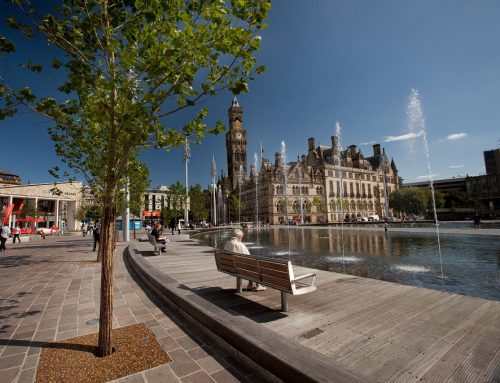
92. Kada supports the Wakefield Futures Commission
Education and access to high skilled training is a key driver of social mobility. Yet, there must also be the economic opportunities to utilise these skills and unlock higher wages. The low-skilled and low-growth economy of Wakefield provides shareable lessons for many de-industrial cities and demonstrates the importance of place-based understanding and responses.
The Wakefield Futures Commission brought together expertise in education, business leadership, public policy and employment and launched in December 2024. The Commission investigated the current and future economic and educational landscape in relation to higher-level skills, to identify barriers to participation, and to consider how to drive change in Wakefield. The Wakefield Futures Commissions work culminated in an evidence-based report with clear recommendations geared around three propositions: a commitment to change, a vision for innovation, and a coherent framework for change. The report was launched in September 2025 and welcomed by local leaders; it can be found here: Wakefield Futures Report – Wakefield Council
Kada Research supported the Commission including extensive primary and secondary research, evidence sessions, and secretariat support.
The research process included:
- A resident survey with nearly 800 responses
- Focus groups and interviews with young people, learners, and people out of work who live in Wakefield
- Interviews with stakeholders and local employers
- Extensive secondary research including data analysis and desk review
The research found:
- Wakefield’s recent economic growth has been driven by low-skilled industries. Increasing productivity levels in Wakefield to the West Yorkshire average would see an extra £533 million of GVA to the local economy.
- Wakefield’s economic strengths include advanced manufacturing, creative and cultural industries, logistics, and renewable energy, green construction, and the decarbonisation of the wider economy.
- Data analysis showed qualification levels within Wakefield’s adult population were significantly under national and regional averages.
- The resident survey found a strong appetite for learning from Wakefield residents, as well as a strong belief in the importance of education for improving life chances and increasing opportunities.
“I should like to thank the Kada team, but especially Sophie Negus, who led both the research work and the report writing, and Karl Dalgleish, who has led the Kada work throughout: both have brought imagination, diligence and commitment to the project”
Sir Chris Husbands, Chair of the Wakefield Futures Commission
The final report presented bold solutions to tackle Wakefield’s low skilled, low productivity, and low wage economy. It outlined that to unlock Wakefield’s potential; a coherent and coordinated plan is needed. Changing the economy, employment and skill levels in Wakefield involves growing higher-skill employment and simultaneously building skill levels. The recommendations included the development of the ‘Wakefield Futures Centre’ which will lead innovation in the economy, support the development of skills in future-facing industries and encourage innovative delivery models which allow a wider range of people to access opportunities.
“Every now and then a project comes along that makes its mark on you, the people you worked with and ultimately, in this case, the citizens of Wakefield. For me this year that was this report about Wakefield’s Future. My team were the research partners for this assignment funded by MHCLG and skilfully managed by a team from Wakefield Council and WYCA.
We worked to Professor Sir Chris Husbands and a team of thoughtful commissioners. The report looks at the economy of Wakefield and maps out an economic future with higher level skills at its heart. It sets out a radical new approach to generating high paid, high skilled jobs in the largest UK city without a university”
Karl Dalgliesh, Study Director
If you would like to work with us, talk through an idea or hear about this work you can contact us at sophie@kadaresearch.co.uk







